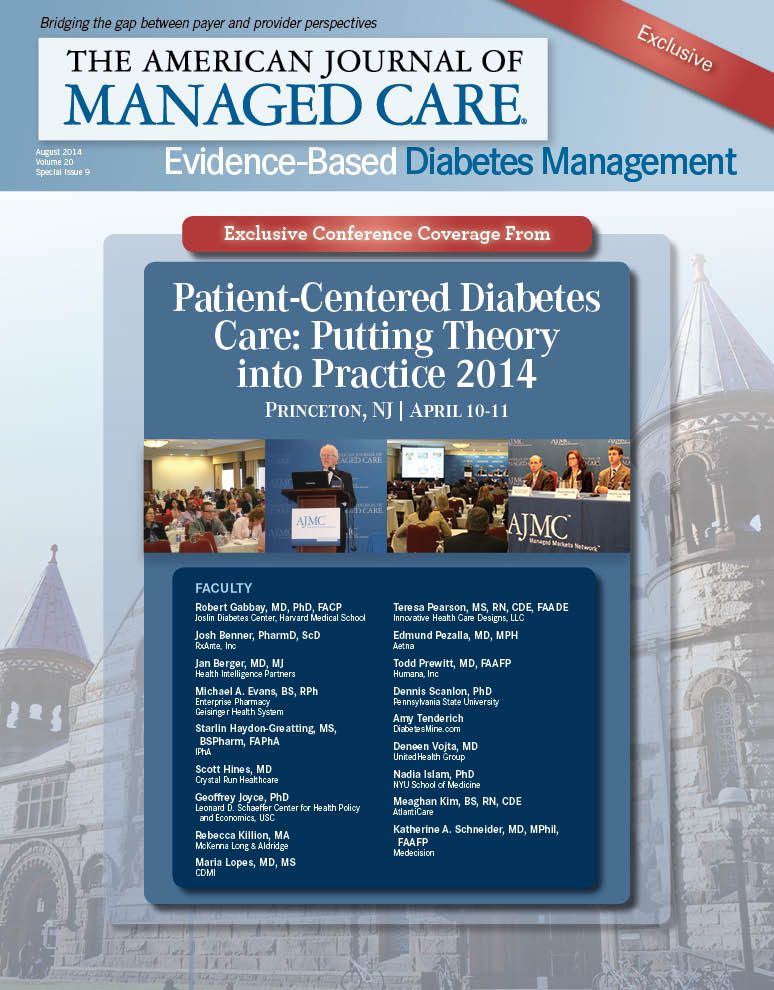- Center on Health Equity & Access
- Clinical
- Health Care Cost
- Health Care Delivery
- Insurance
- Policy
- Technology
- Value-Based Care
The Role of the Pharmacist as Diabetes Caregiver
During her presentation, Haydon-Greatting who has trained as a pharmacist, talked about the influential role that a pharmacist could play in patient care and disease management.
According to Starlin Haydon-Greatting, MS, BSPharm, FAPhA, it comes down to the numbers: on average, a patient sees his primary care physician 3 to 4 times a year, “if we’re lucky.” In contrast, the local pharmacist sees that same patient 12 to 15 times a year.
“Because of that frequency, and because they come to the stores to buy all their other over-the-counter medical products…we do have an opportunity to create access, a greater access,” Haydon- Greatting said. And now evidence indicates that making better use of pharmacists as educators, as true partners in healthcare delivery, instead of just dispensers of drugs, makes sense.
After years as a top official in Illinois’ Medicaid program, Haydon-Greatting is now director of clinical programs for the Illinois Pharmacists Association, working to create a network that will enable pharmacists to help patients help themselves, especially in diabetes, prediabetes, and cardiovascular health. Based on a program known as the Asheville Project, the model involves pointof- care with the patient, physician, and pharmacist, through self-insured employers in value-based benefit plans. “Our patients are getting waived copays, and they’re getting face-to-face pharmacist coaches,” she said.
The program recognizes that diabetes is ongoing and self-management is imperfect, and that “people recidivate,” Haydon-Greatting said. “You’re going along fine, and then your daughter gets married and you eat half the wedding cake that was left over. So, you need constant hand-holding and support.”
The so-called “collaborative care” model can provide a guide, but Haydon- Greatting noted that in some states, that is a specific legal term only properly used in certain settings. But to utilize the evidence that shows pharmacist involvement improves healthcare outcomes requires no such limitations, especially as the nation moves forward with the implementation of the Affordable Care Act and patient-centered medical homes (PCMHs).
Payment can be an issue, but she noted that the state of New Jersey recently released a report recommending payment to pharmacists who serve on diabetes care teams.1 New Jersey Medicaid, she said, will soon implement this proposal.
What makes an impact with employers? Haydon-Greatting recommended setting goals employers can understand, such as improvements in waist circumference. “When I’m talking to CFOs and all the business people within an employer group, they really don’t understand all the medical vernacular,” she noted, “but when I say waist circumference, they can picture that, and that’s something very valid.”
She also works on medication therapy management, something not unlike what she did when she started pharmacy school in 1979. The name of the process may change, but the ability of pharmacists to engage patients they see all the time—to encourage them to find a personal care physician (PCP), see a podiatrist, or get their eyes checked if they have diabetes—doesn’t change over time. The rest of the healthcare universe is catching up in time for pharmacists to care for all the Baby Boomers
who will need their services.
“We want to help improve patient care, increase communication between and among patients and providers,” Haydon-Greatting said. Pharmacists can increase the “availability of those objective measures and reduce total costs of care over time, and maximize medication use by working with you.” EBDMReference
1. American Pharmacists Association website. Harvard Law School: include pharmacists on diabetes care teams. http://www.pharmacist.com/harvard-law-school-include-pharmacistsdiabetes-care-teams-0. Published April 8, 2014. Accessed May 29, 2014.

Quality of Life: The Pending Outcome in Idiopathic Pulmonary Fibrosis
February 6th 2026Because evidence gaps in idiopathic pulmonary fibrosis research hinder demonstration of antifibrotic therapies’ impact on patient quality of life (QOL), integrating validated health-related QOL measures into trials is urgently needed.
Read More
Exploring Pharmaceutical Innovations, Trust, and Access With CVS Health's CMO
July 11th 2024On this episode of Managed Care Cast, we're talking with the chief medical officer of CVS Health about recent pharmaceutical innovations, patient-provider relationships, and strategies to reduce drug costs.
Listen
Building Trust: Public Priorities for Health Care AI Labeling
January 27th 2026A Michigan-based deliberative study found strong public support for patient-informed artificial intelligence (AI) labeling in health care, emphasizing transparency, privacy, equity, and safety to build trust.
Read More

